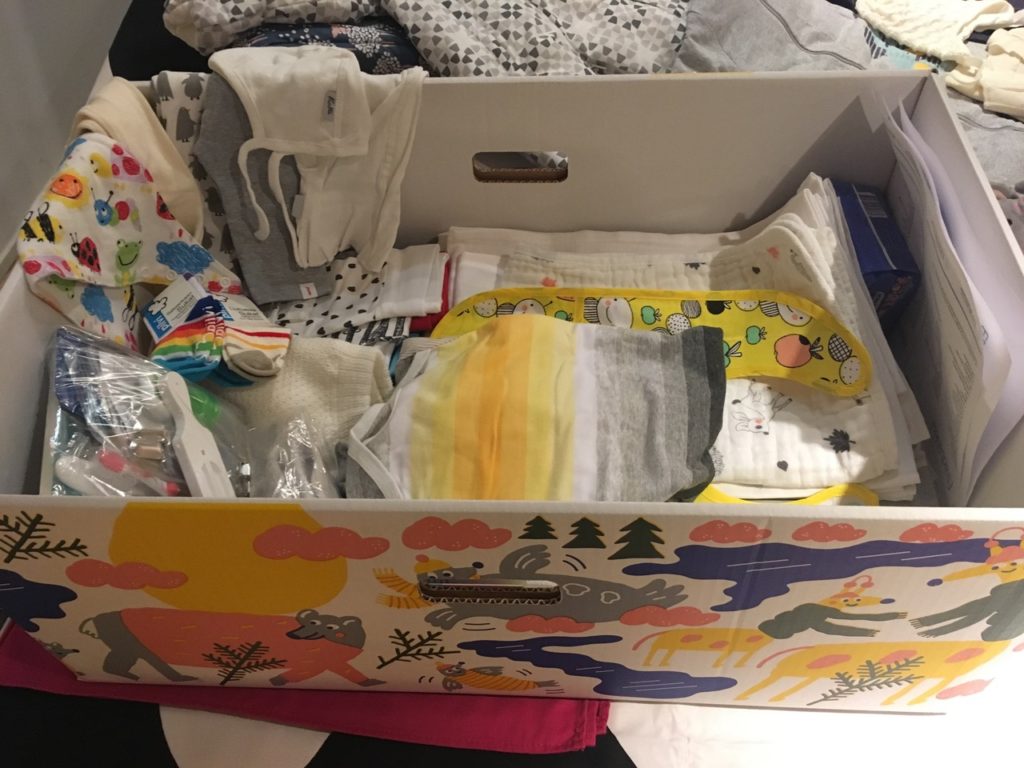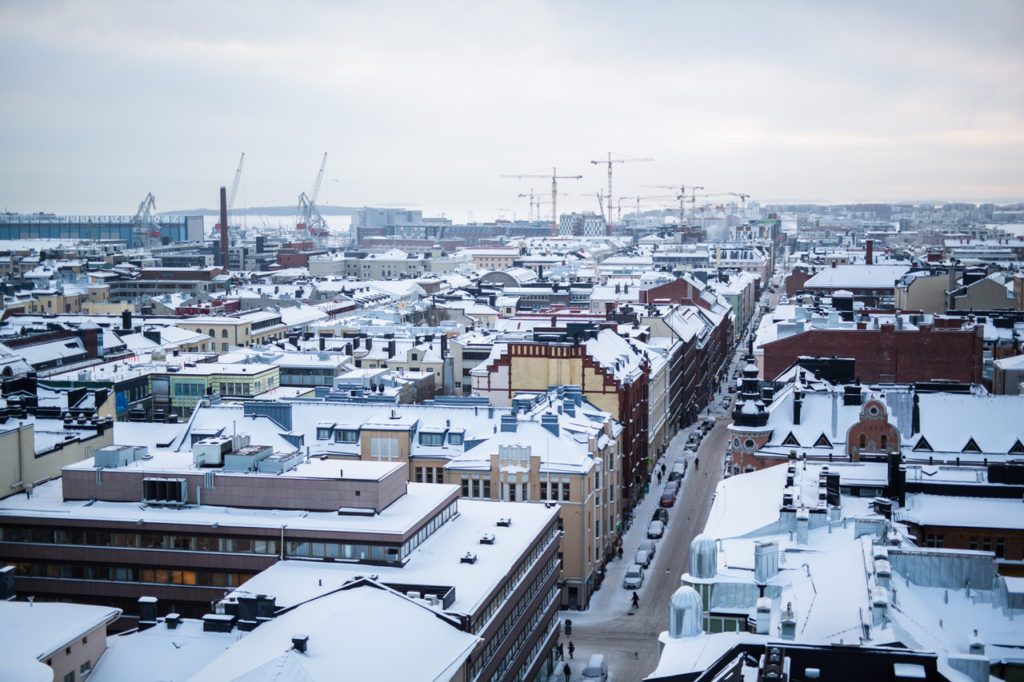Relative to its size, Finland contributes more to humanity and burdens the planet less than any other country.
That’s the finding of the Good Country Index, published on January 23, which ranked Finland first among 153 countries, based on 35 criteria determined by the United Nations and other international organizations. Divided into seven categories, those criteria include science and technology, culture, international peace and security, world order, planet and climate, prosperity and equality, and health and well-being. Those criteria create a “balance sheet” for each nation, which determines if the country places a burden on humanity, or contributes to the benefit of it.

In the most recent index, Finland ranked best in a number of categories determined to benefit humanity, including in number of journal exports, patents, freedom of movement, press freedom, cyber security, refugees generated, environmental agreements compliance, open trading, FDI outflows, and food aid. From its sauna tradition that benefits physical and mental health, to its baby box that helps mitigate the financial burden of all new parents, Finland offers a number of initiatives that benefit its citizens, and the citizens of those countries which mimic them.

Finland’s Minister for Foreign Affairs Timo Soini accepted the recognition during the World Economic Forum in Davos this week.
"This is an excellent recognition. Finland is a good, down-to-earth country and we are a reliable partner in international forums,” Minister Soini said. “Our performance is the result of consistent work and I witness it in my work on an almost daily basis. The recognition is good for Finland's internal discussion and atmosphere.”
The Good Country Index was created by Simon Anholt in 2014 via a Ted Talk. Speaking to Diplomatic Courier from Davos, Anholt stressed that the index isn’t a judgment on a country’s policies, it’s a provocation to the countries on the index that they need to “share some of their magic and their experiences with other countries that need it.”
“The problem with a ranking is that someone has to come first. The reality is, no country on earth does anything like enough,” Anholt said. “The Finns are the very best in that their culture is fundamentally collaborative when it comes to confronting the global challenges relative t the size of their country, but we need a world where all countries do that as a matter of default.”
“We need to change the fundamental culture of governance worldwide from one of being one hundred percent competitive to one that’s fundamentally collaborative and then they’re free to compete on top of that,” Anholt said. “Now, they compete and occasionally collaborate when the UN reminds them, and it’s just not good enough.”
Anholt recently launched his own “country,” a landless entity of people around the world collaborating on issues affecting humanity. “We’ve done our own analysis and identified a segment of the global population, very widely and almost randomly distributed, which is definitely no less than ten percent of the world’s population, which is approximately 760 million people. Those natural cosmopolitans, are the kind of people who just don’t want to wait any longer for the international system and the community of nations to get its act together. They want to do something now.”

“With 760 million citizens, it simply doesn’t matter if we have territory or not. It doesn’t matter whether we’re recognized by the UN or not. We have de facto influence.”
Anholt believes that within the next five years, the Good Country can reach those 760 million people, and create a bloc that will be able to collaborate with nations for the common good. Within 48 hours of opening the Good Country for citizenship, residents of sixty-five nations joined, and now more than 100 nations are represented, at a mere cost of $5 per year.
“If you multiply $5 by 760 million, we’ve got the GDP of Sierra Leone to spend every year on trying to fix the international system,” Anholt said.
The Good Country Index, however, operates separately from the virtual country itself, launched initially to start a discussion about the nature of countries, and if they exist to serve its own citizens at everyone else’s expense, or to serve the greater humanity through the next decade. The Good Country Index has been very effective at sparking those discussions.
It seems to have done so in Finland this year, where the news that the country has been selected the “goodest” is alighting news and social media accounts. The Finnish Ministry of Economic Affairs and Employment boasted on Twitter, “Finland did it! We are number one in Good Country Index. Not bad at all from the tiny country, which population presents only 0,07 % of global population.”
But, in keeping with Anholt’s vision, Finland doesn’t appear ready to simply take its trophy and go home.
“Let's be proud of ourselves for a moment,” Minister Soini said, “and let's continue to pursue even better results.”
About the author: Molly McCluskey is the Editor-at-Large for Diplomatic Courier. Follow her on Twitter @MollyEMcCluskey.


a global affairs media network
Finland Ranked “Good-est” Country in the World

January 24, 2019
Relative to its size, Finland contributes more to humanity and burdens the planet less than any other country.
That’s the finding of the Good Country Index, published on January 23, which ranked Finland first among 153 countries, based on 35 criteria determined by the United Nations and other international organizations. Divided into seven categories, those criteria include science and technology, culture, international peace and security, world order, planet and climate, prosperity and equality, and health and well-being. Those criteria create a “balance sheet” for each nation, which determines if the country places a burden on humanity, or contributes to the benefit of it.

In the most recent index, Finland ranked best in a number of categories determined to benefit humanity, including in number of journal exports, patents, freedom of movement, press freedom, cyber security, refugees generated, environmental agreements compliance, open trading, FDI outflows, and food aid. From its sauna tradition that benefits physical and mental health, to its baby box that helps mitigate the financial burden of all new parents, Finland offers a number of initiatives that benefit its citizens, and the citizens of those countries which mimic them.

Finland’s Minister for Foreign Affairs Timo Soini accepted the recognition during the World Economic Forum in Davos this week.
"This is an excellent recognition. Finland is a good, down-to-earth country and we are a reliable partner in international forums,” Minister Soini said. “Our performance is the result of consistent work and I witness it in my work on an almost daily basis. The recognition is good for Finland's internal discussion and atmosphere.”
The Good Country Index was created by Simon Anholt in 2014 via a Ted Talk. Speaking to Diplomatic Courier from Davos, Anholt stressed that the index isn’t a judgment on a country’s policies, it’s a provocation to the countries on the index that they need to “share some of their magic and their experiences with other countries that need it.”
“The problem with a ranking is that someone has to come first. The reality is, no country on earth does anything like enough,” Anholt said. “The Finns are the very best in that their culture is fundamentally collaborative when it comes to confronting the global challenges relative t the size of their country, but we need a world where all countries do that as a matter of default.”
“We need to change the fundamental culture of governance worldwide from one of being one hundred percent competitive to one that’s fundamentally collaborative and then they’re free to compete on top of that,” Anholt said. “Now, they compete and occasionally collaborate when the UN reminds them, and it’s just not good enough.”
Anholt recently launched his own “country,” a landless entity of people around the world collaborating on issues affecting humanity. “We’ve done our own analysis and identified a segment of the global population, very widely and almost randomly distributed, which is definitely no less than ten percent of the world’s population, which is approximately 760 million people. Those natural cosmopolitans, are the kind of people who just don’t want to wait any longer for the international system and the community of nations to get its act together. They want to do something now.”

“With 760 million citizens, it simply doesn’t matter if we have territory or not. It doesn’t matter whether we’re recognized by the UN or not. We have de facto influence.”
Anholt believes that within the next five years, the Good Country can reach those 760 million people, and create a bloc that will be able to collaborate with nations for the common good. Within 48 hours of opening the Good Country for citizenship, residents of sixty-five nations joined, and now more than 100 nations are represented, at a mere cost of $5 per year.
“If you multiply $5 by 760 million, we’ve got the GDP of Sierra Leone to spend every year on trying to fix the international system,” Anholt said.
The Good Country Index, however, operates separately from the virtual country itself, launched initially to start a discussion about the nature of countries, and if they exist to serve its own citizens at everyone else’s expense, or to serve the greater humanity through the next decade. The Good Country Index has been very effective at sparking those discussions.
It seems to have done so in Finland this year, where the news that the country has been selected the “goodest” is alighting news and social media accounts. The Finnish Ministry of Economic Affairs and Employment boasted on Twitter, “Finland did it! We are number one in Good Country Index. Not bad at all from the tiny country, which population presents only 0,07 % of global population.”
But, in keeping with Anholt’s vision, Finland doesn’t appear ready to simply take its trophy and go home.
“Let's be proud of ourselves for a moment,” Minister Soini said, “and let's continue to pursue even better results.”
About the author: Molly McCluskey is the Editor-at-Large for Diplomatic Courier. Follow her on Twitter @MollyEMcCluskey.


